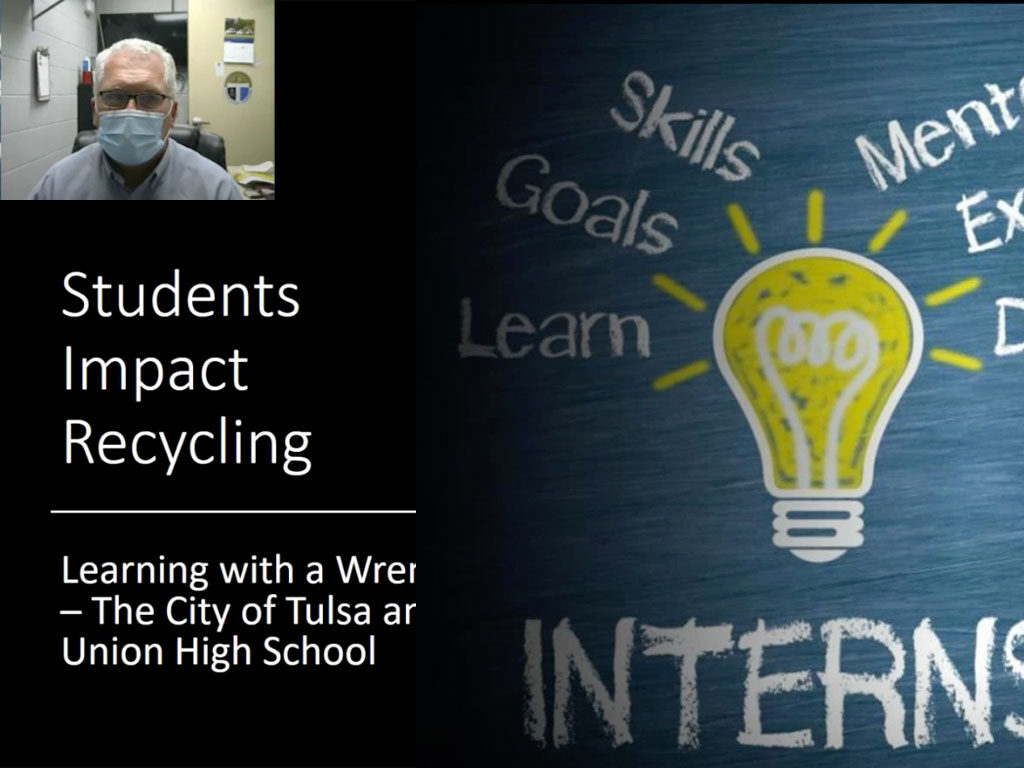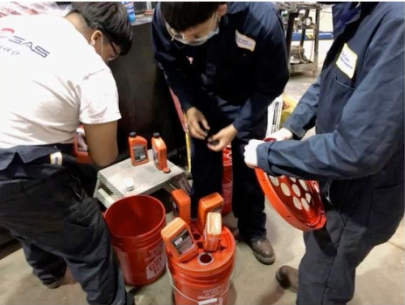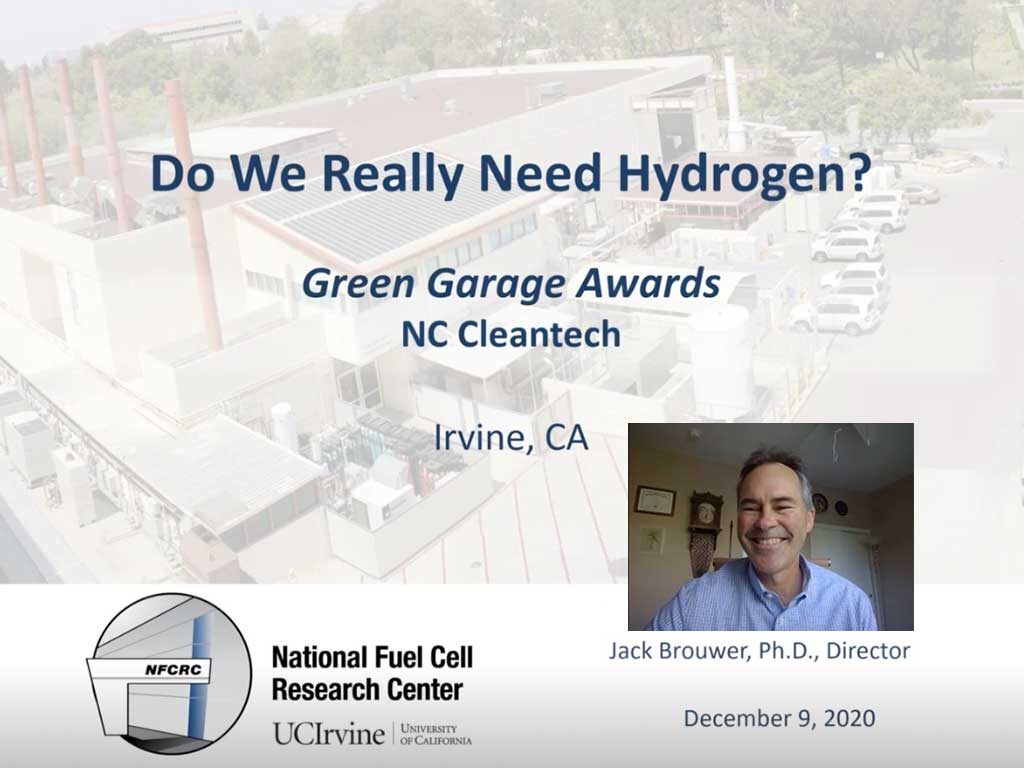Last year, the NC Clean Energy Technology Center (NCCETC), No Spill Systems, RinseKit and the United Soybean Board sponsored The 100 Best Fleet’s launch of their new Green Garage Contest. The contest was created to bring together the most progressive and environmentally-committed fleets to share the best practices for eco-friendly vehicle fleet maintenance garages.
At the end of the Sustainable Fleet Technology Conference, the NCCETC hosted a webinar where the winners of the 2020 Green Garage Contest were announced and shared the innovative and simple ways they “green the maintenance garage” through operations improvements and cost savings. The webinar was originally held December 9, 2020 and full videos and transcripts are available for all of the conference’s sessions online.
Tom C. Johnson, author of the Green Fleet Awards, the Green Garage Contest and The 100 Best Fleets in the Americas, is the Director of the Green Garage Contest. The winners of the contest are the “best of the best stewards of the environment” Johnson said.
AND THE WINNER IS…
 The City of Tulsa, Oklahoma was recognized as the Green Garage’s 2020 number one fleet for integrating recycling into their Learning With a Wrench (LWW) internship program. LWW allows students in Union Public Schools to work with City of Tulsa employees who maintain the City’s fleets of trucks, cars, backhoes and other large equipment to gain hands-on vehicle maintenance experience.
The City of Tulsa, Oklahoma was recognized as the Green Garage’s 2020 number one fleet for integrating recycling into their Learning With a Wrench (LWW) internship program. LWW allows students in Union Public Schools to work with City of Tulsa employees who maintain the City’s fleets of trucks, cars, backhoes and other large equipment to gain hands-on vehicle maintenance experience.
“Oklahoma had an excellent discussion of parts cleaning processes, products used, auditing by the stay and their fluid containment practices,” noted Courtney Boznic, chief judge of the Green Garage Contest.
 Through the recycling training, both students and technicians learned to be more aware of the materials used and which ones could be reused or recycled. The first exercise students were given was to create a device to collect oil from quart bottles so that the bottles can be recycled and the oil can be reused to heat the shop during cooler temperatures.
Through the recycling training, both students and technicians learned to be more aware of the materials used and which ones could be reused or recycled. The first exercise students were given was to create a device to collect oil from quart bottles so that the bottles can be recycled and the oil can be reused to heat the shop during cooler temperatures.
The Mechanical Shop Supervisor and Instructor of LWW, Gary Burr, has mentored over 100 high school students with the City, two of which were hired as technicians. “The oil collection devices built by the students were dispersed through the shop to help each one of the technicians remember to recycle,” Burr explained.
Burr also worked with technicians and students to find the best location for recycling bins in the shop. The technicians were encouraged to be much more mindful of the waste oil, plastic, paper and cardboard they handled to ensure it was not just thrown away. “Shop-wide participation in recycling improved,” he noted.
SECOND PLACE
 The University of California Irvine’s National Fuel Cell Research Center (NFCRC) was recognized as the number one Green University Fleet in North America for its research on electric buses powered by hydrogen fuel cells. Jack Brouwer, a professor at Irvine and the Director of NFCRC
The University of California Irvine’s National Fuel Cell Research Center (NFCRC) was recognized as the number one Green University Fleet in North America for its research on electric buses powered by hydrogen fuel cells. Jack Brouwer, a professor at Irvine and the Director of NFCRC
Jack Brouwer is a professor at the University of California Irvine and the Director of NFCRC. In a study that compared a 2015 electric hydrogen fuel cell bus with 2018 electric battery buses, the fuel cell bus not only had shorter fueling times, but a longer mile range and higher passenger capacity. While electric battery buses can be more efficient for shorter-range use, fuel cell buses are still a comparable alternative to diesel.
Hydrogen is also essential for the electric grid’s transition away from non-renewable energy sources. Due to vulnerabilities in solar and wind power, Brouwer explains, only hydrogen is capable of the magnitude of energy storage required for transitioning the grid to 100 percent renewable energy sources. Not only do batteries lack the storage capacity required for seasonal changes, but the lithium and cobalt required to manufacture them are some of the most expensive and trickiest elements to extract.
“There’s just not enough lithium cobalt around to make batteries of the magnitude that we need for accomplishing this energy storage,” Brouwer said. “Hydrogen, on the other hand, can be made from water and renewable electricity.”
Through research, beta-testing, market dynamics and education, the NFCRC is bridging fuel cell technology development and its successful introduction into the marketplace to accelerate its deployment.
THE 2020 GREEN GARAGE’S TOP 10 FLEETS:
- City of Tulsa, Oklahoma
- University of California, Irvine
- University of California, Davis
- Westerville Schools in Ohio
- City of Vancouver, Washington
- City of Roanoke, Virginia
- City of Albany Georgia
- Laketran Ohio
- West Valley Construction in California
- Essential Utilities Company in Pennsylvania
To learn more about best practices from the top performing fleets, the entire December 9 webinar is available to watch online. This free session features operations and facility strategies and techniques from these top performing fleets, providing need-to-know information and comprehensive commitment to green vehicle maintenance.
